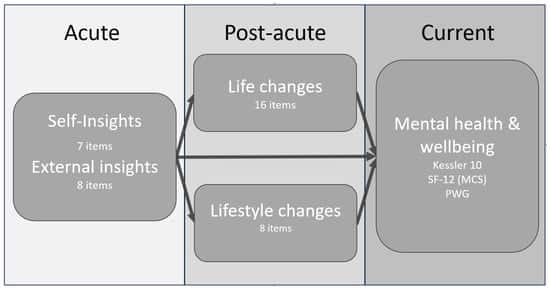Welcome to my blog, Ayahuasca Experience. In today’s post, we delve into the complexities of bad ayahuasca experiences, exploring what can go wrong and why. Join us as we uncover the truths behind these challenging journeys.
Understanding the Challenges: Navigating Through Negative Ayahuasca Experiences
Ayahuasca, the powerful and sacred plant medicine from the Amazon, has been used for centuries by indigenous tribes for spiritual and physical healing. In modern times, Ayahuasca retreats have become increasingly popular among those seeking personal growth, emotional healing, and a deeper connection with the divine. However, not all Ayahuasca experiences are positive, and some individuals may encounter challenges and negative experiences during their journeys.
One of the primary challenges in navigating through negative Ayahuasca experiences is understanding that the brew can bring forth intense and unsettling emotions. Participants may relive past traumas or face unresolved issues that they have long suppressed. The vividness of Ayahuasca visions can sometimes be overwhelming and lead to fear or panic.
It’s also important to recognize that a negative experience isn’t solely a product of the Ayahuasca itself; it can be influenced by the set and setting. The «set» refers to an individual’s mindset going into the experience, while the «setting» pertains to the physical and social environment. Negative thoughts, feelings of unease, or an uncomfortable setting can all impact the nature of the Ayahuasca journey.
To cope with these difficulties, it’s crucial for participants to have access to skilled facilitators and a supportive community. Experienced facilitators can provide guidance and reassurance, helping individuals to navigate their experiences, make sense of difficult visions, and integrate what they have learned into their lives post-retreat. A nurturing community can offer empathy and understanding, which is tremendously beneficial during the integration process.
Additionally, preparation and integration are key components in dealing with negative Ayahuasca experiences. Proper preparation involves mental, emotional, and sometimes physical activities, such as meditating, setting intentions, or following a diet free of certain foods and substances. Integration, on the other hand, is the process of making sense of the Ayahuasca experience after returning to everyday life. This might involve activities such as journaling, participating in sharing circles, counseling, or continued meditation practices.
Lastly, it’s essential to approach Ayahuasca with respect and to understand that it is not a cure-all. While Ayahuasca has the potential to be profoundly transformative, it’s only one element of the healing process. Working with the plant requires commitment and openness to change. Negative experiences, although challenging, can be viewed as part of a larger journey towards healing and self-discovery, provided they are approached with care, respect, and the proper support.
Elon Musk On Taking Mushrooms!
Jordan Peterson’s Life Changing 7g Heroic Dose
Frequent Questions
What are the common negative psychological effects reported after an Ayahuasca retreat, and how are they managed during the healing process?
Can a bad Ayahuasca experience lead to long-term mental health issues, and what steps do retreats take to mitigate this risk?
Yes, a bad Ayahuasca experience, sometimes referred to as a «bad trip,» can potentially lead to long-term mental health issues such as anxiety or PTSD in some individuals. To mitigate this risk, reputable retreats carefully screen participants for psychological and medical conditions, provide preparation guidance, ensure the presence of experienced facilitators during ceremonies, and offer integrative support post-ceremony for processing and understanding the experience.
How do retreat facilitators prepare participants for the possibility of challenging or adverse experiences during an Ayahuasca ceremony?
Retreat facilitators prepare participants for challenging experiences during Ayahuasca ceremonies by offering pre-ceremony consultations to discuss intentions and concerns. They provide educational resources about the potential physical and psychological effects of Ayahuasca. Facilitators also conduct rituals and exercises that promote a supportive environment, like establishing a safety protocol and teaching grounding techniques. It’s crucial for them to create a space for open communication where participants feel comfortable sharing their fears and expectations. Additionally, they ensure there is always experienced support available during the ceremony for anyone who encounters difficulties.
In conclusion, while ayahuasca has the potential for profound healing and transformation, it is important to acknowledge that not all experiences are positive. Bad ayahuasca experiences can occur due to a variety of factors, including improper preparation, inadequate support during the ceremony, and personal mental and emotional readiness. It is crucial for seekers of this powerful plant medicine to do thorough research, choose reputable retreat centers, and ensure they have the necessary aftercare in place.
Remember, ayahuasca is not a «one-size-fits-all» remedy and should be approached with respect, seriousness, and a clear understanding of the potential risks involved. By sharing experiences and educating ourselves about both the light and shadow sides of ayahuasca, we create a more informed community that can navigate these waters with wisdom and care.
For anyone considering an ayahuasca retreat, remember to listen deeply to your own intuition and needs, and never hesitate to seek professional guidance if you encounter challenges post-ceremony. The journey of healing is often non-linear and demands patience, courage, and compassion. May your path towards healing—whether it includes ayahuasca or not—be guided by inner strength and surrounded by supportive community.






